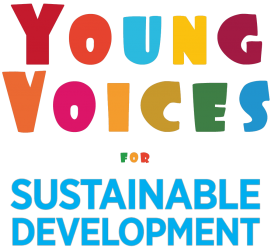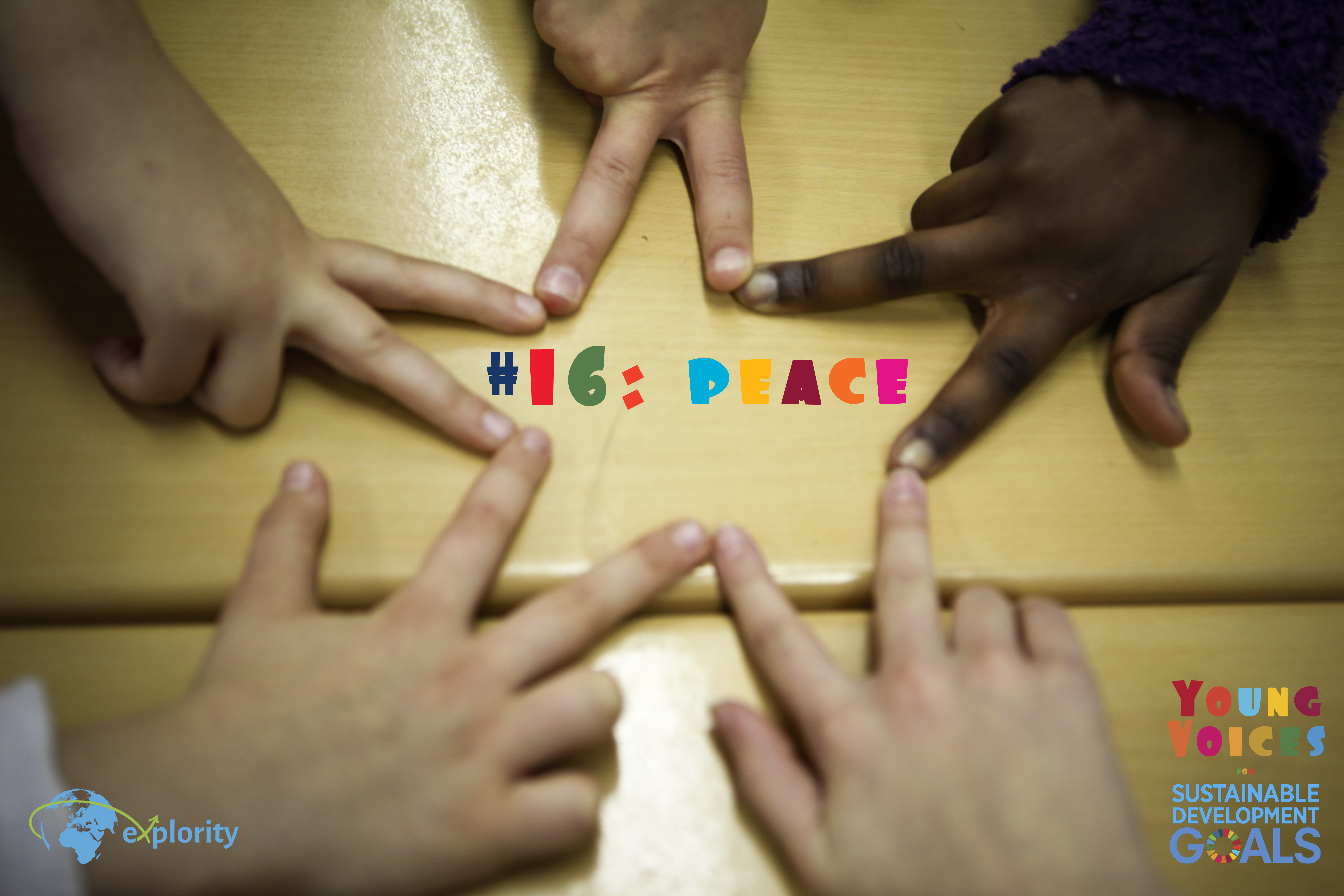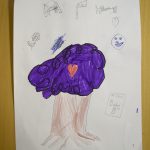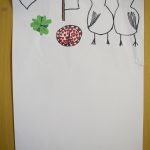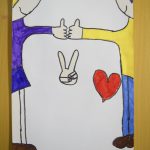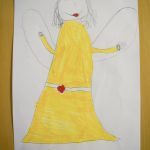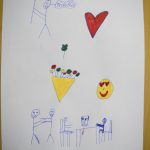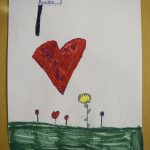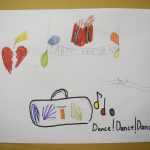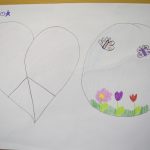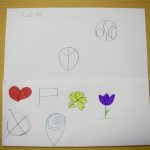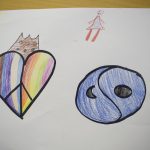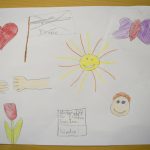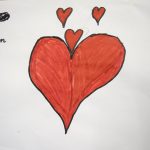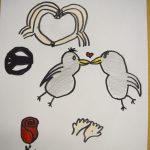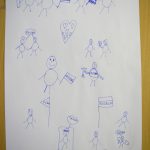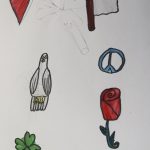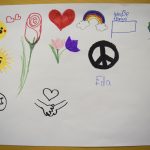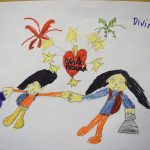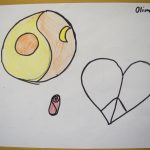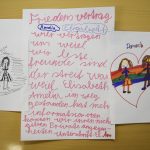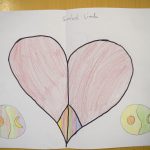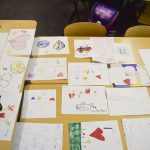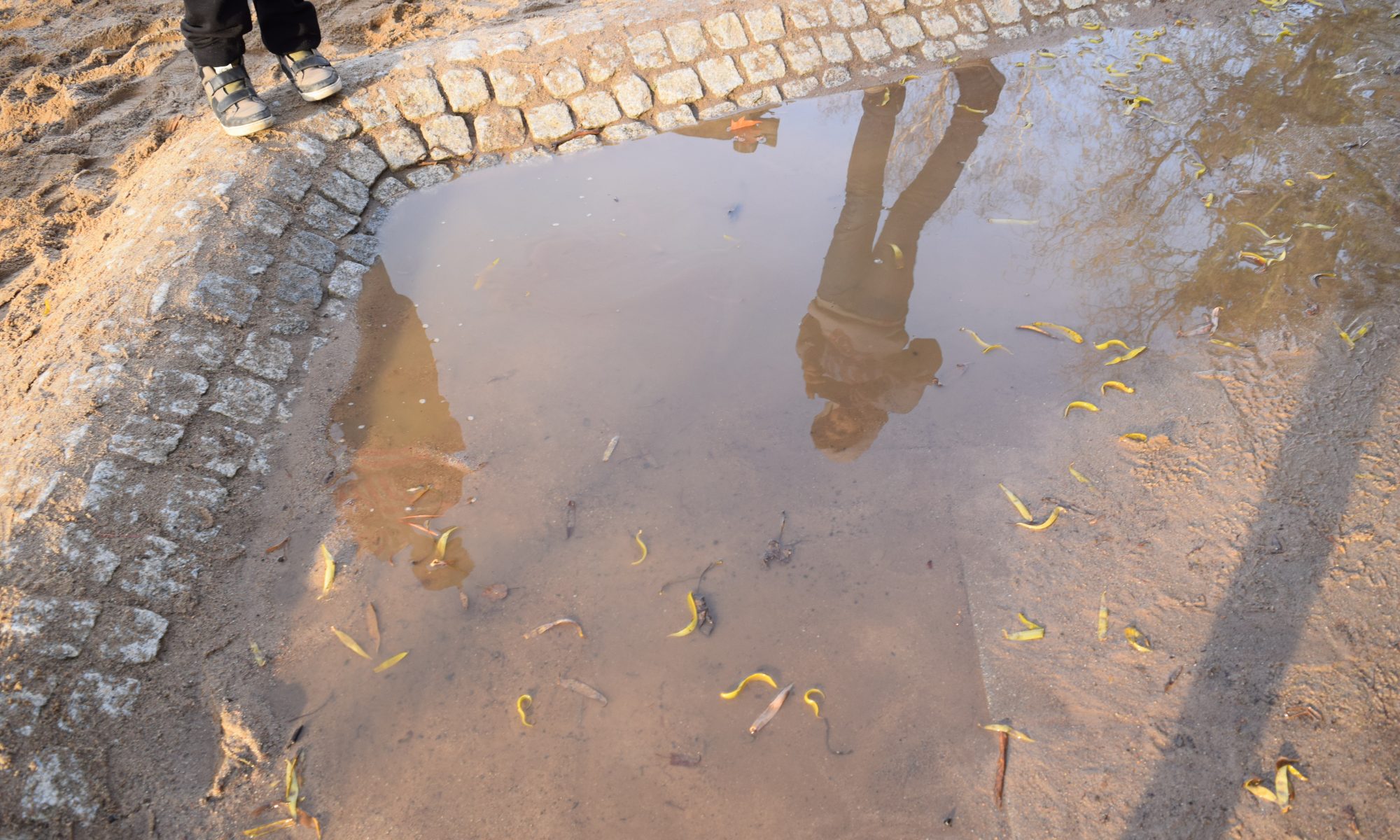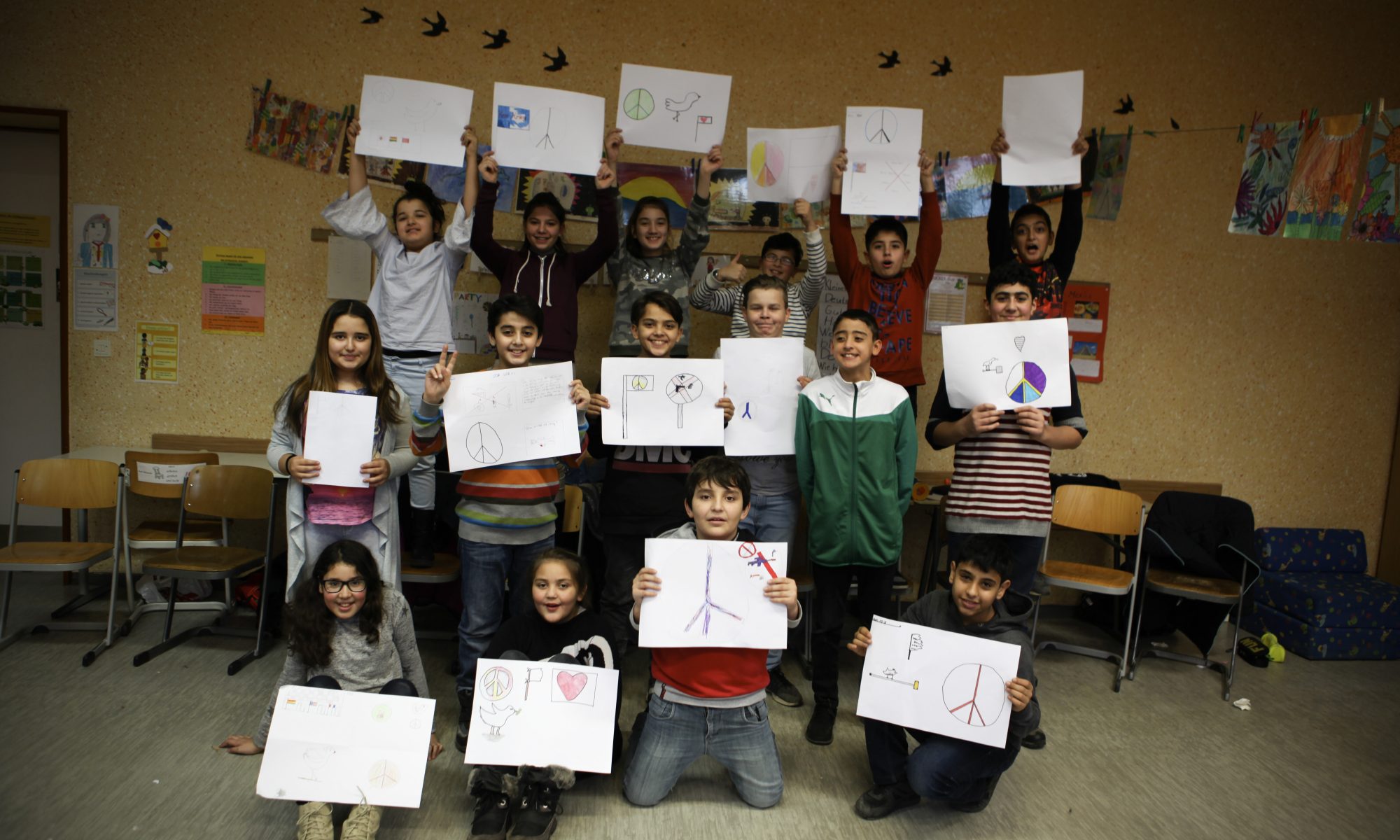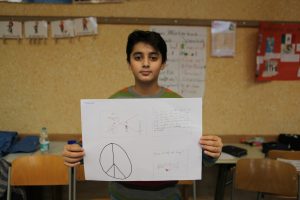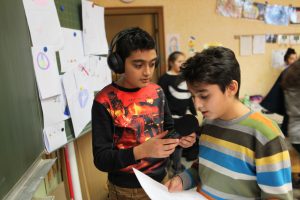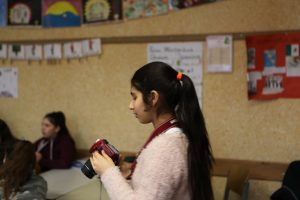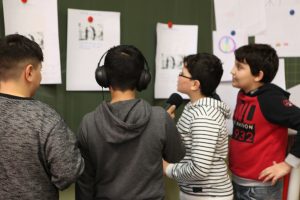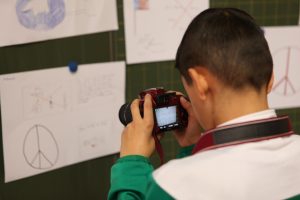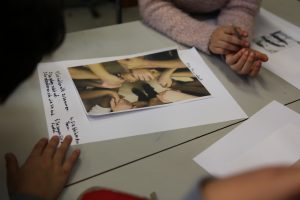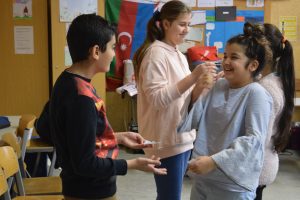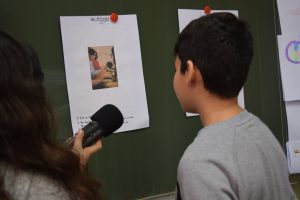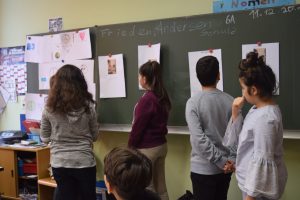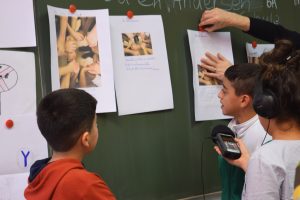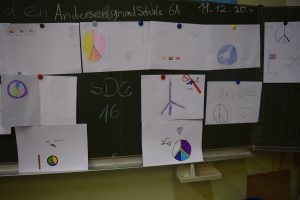
YOUNG VOICES today come from class 5a of Ringelnatz school in Berlin where the kids had a unique opportunity when they got to play a serious game in their computer room as well as replaying it in their class room in an analog way!

Babu and Mirembe is a digital, intercultural learning game, which introduces life realities from kids in Kampala, Uganda and their challenges to go to school. In Uganda, a child is only eligible to go to school, if it can afford to buy a school uniform! Goal of this game is to help a Ugandan child to sell water in an urban environment in order to earn money to be able to buy a school uniform and thus being able to go to school!

You, as the player, can speed up the process, if you know the answers to quiz questions along the way, collecting bonus points which help to buy the uniform earlier.

The game reflects on the problems for natives to have access to clean water (SDG #6) as well as the challenge of gaining access to quality education only by buying a school uniform which overburdens families with low or no income, excluding their children from access to education (SDG #4)

Babu and Mirembe was developed during a project by Radijojo e.V. with 5th graders in Berlin Germany with the support of the visiting director of the Rainbow House of Hope in Kampala, Uganda, who gave valuable insights in the daily lives and challenges of children in the capitol of the subsaharan country.
The next day the same students who played Babu and Mirembe on a desktop now developed a way to recreate the game scenario in their own classroom, in an analog way!

First, the students drew a plan of how to set up a game city in their own classroom. Then organizing streets, buildings and game activity stations…

…such as the water station, where the player buys water which he sells to other people (represented by students) in the city. Money to buy school uniforms could also be earned at a… 
… construction site. Child labour is unfortunately still common in many African countries. Here the students at Ringelnatz school had to stack ten chairs and thus learned, how heavy physical labour can be…

At a quiz station, the students had to answer water related question (SDG #6). With the (“selfmade”) money earned…

…the students could finally spend their Ugandan Schillings to buy a uniform at the school uniform shop


The analog version of the game added an even more dramatic, immediate and intense level to the game experience. The students felt the pressure and the spirit of achieving the goal. The students reaction was highly positive referring to the engaging methodology and the intercultural context of their global learning experience.
To play a German version of the game yourself follow this link
The project was supported by

on behalf of

and

Special thanks to the students from class 5a, the principal as well as the class teacher of the Ringelnatz Schule in Berlin, Germany.







